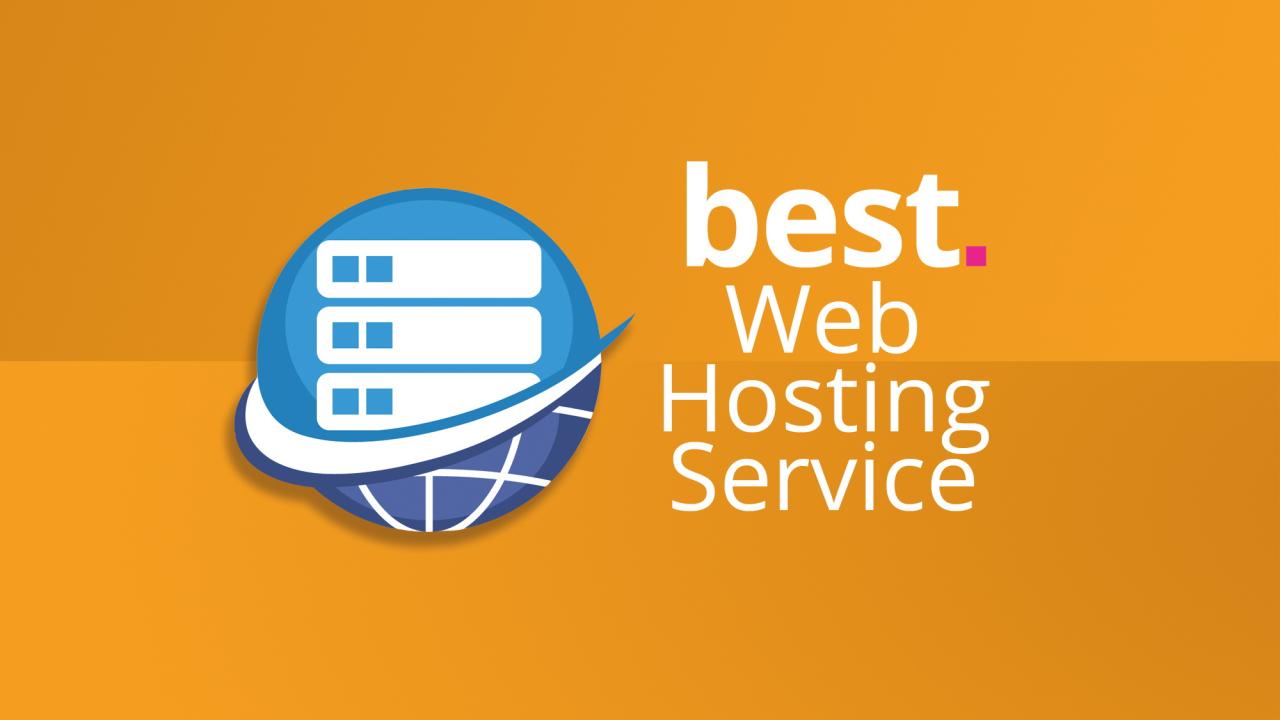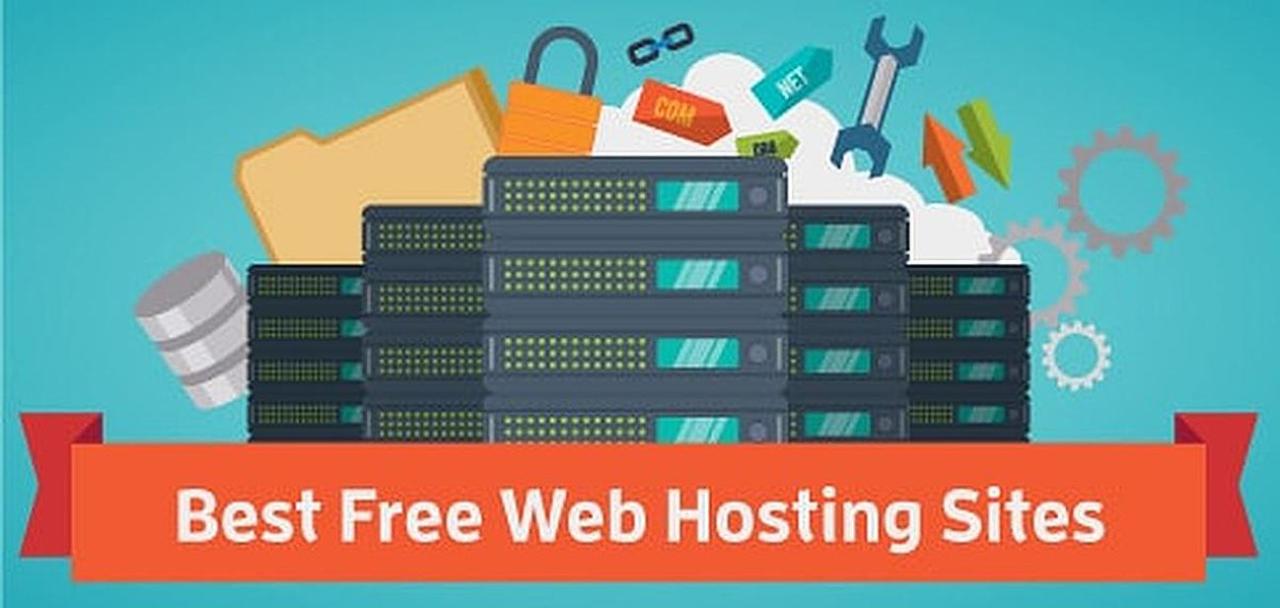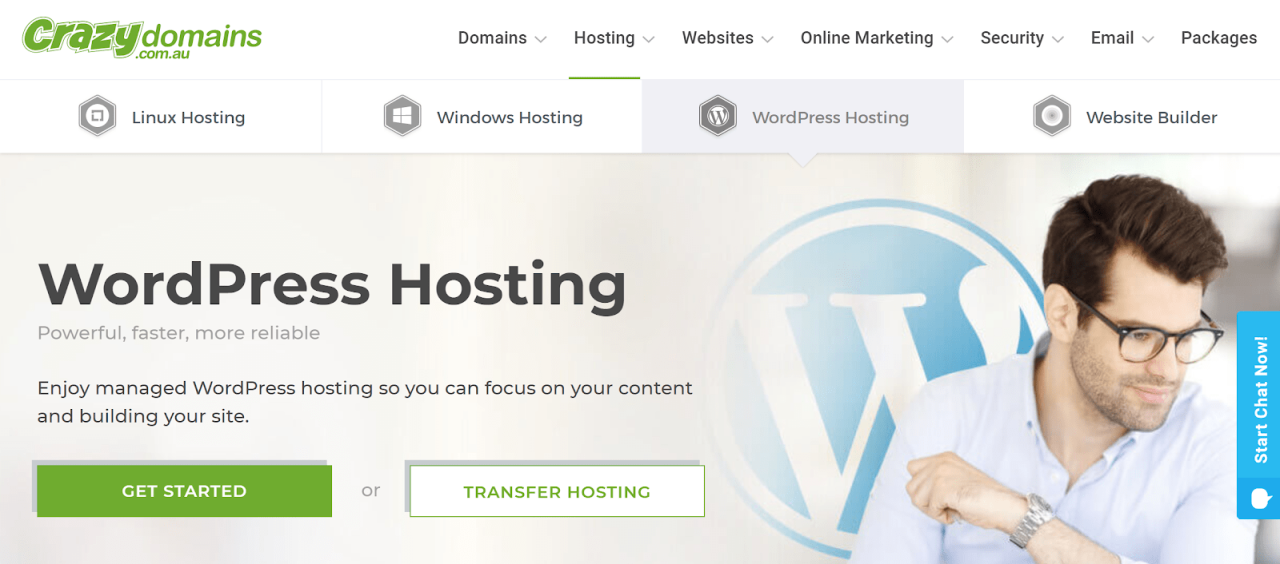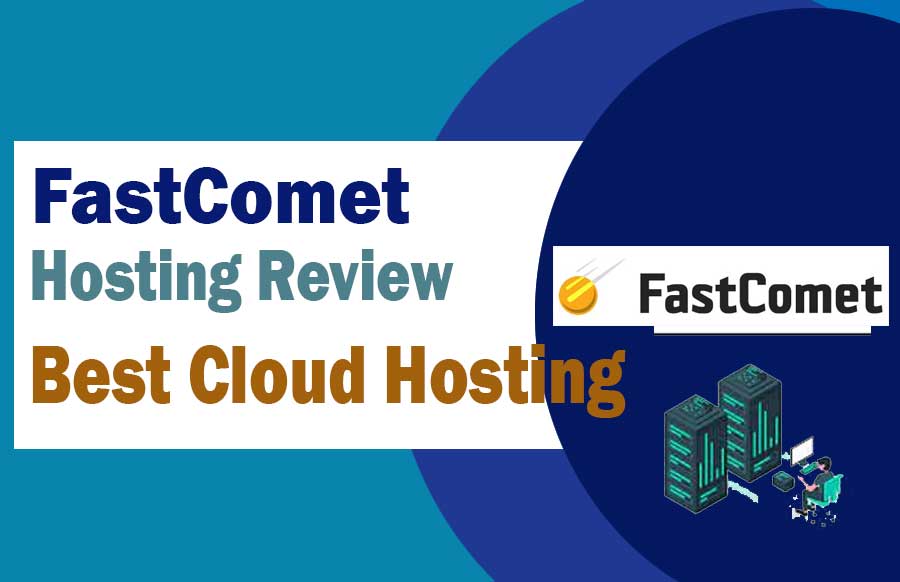Top hosting sites are the foundation of any successful website. Choosing the right hosting provider can be overwhelming, but understanding the key factors involved can help you make an informed decision. From reliability and performance to customer support and pricing, there are several aspects to consider when evaluating different hosting options.
This guide will explore the essential elements of web hosting, provide insights into choosing the best hosting provider for your specific needs, and highlight the top players in the industry. We’ll delve into the different types of hosting, key features to look for, and best practices for website management.
Understanding Web Hosting

Web hosting is the service that makes your website accessible on the internet. It involves storing your website’s files on a server, which is a powerful computer connected to the internet. When someone types your website’s address (URL) into their web browser, the server delivers the files to their device, displaying your website.
Types of Web Hosting
Web hosting comes in various types, each catering to different website needs and budgets.
- Shared Hosting: This is the most affordable option, where multiple websites share the resources of a single server. It’s suitable for small websites with low traffic.
- VPS (Virtual Private Server) Hosting: VPS offers a more powerful and dedicated environment compared to shared hosting. It provides a virtualized server with dedicated resources, making it suitable for websites with moderate traffic and specific resource requirements.
- Dedicated Hosting: This option provides you with an entire server dedicated solely to your website. It offers maximum performance, security, and control, making it ideal for high-traffic websites, demanding applications, and sensitive data.
- Cloud Hosting: Cloud hosting utilizes a network of servers to distribute your website’s resources across multiple locations. This provides high scalability, flexibility, and redundancy, making it suitable for websites with unpredictable traffic spikes and demanding applications.
Common Hosting Features
Web hosting providers offer various features to enhance website performance, security, and management. Some common features include:
- Bandwidth: This refers to the amount of data that can be transferred between your server and visitors’ devices. Higher bandwidth is essential for websites with high traffic or large file downloads.
- Storage: This refers to the amount of disk space allocated for your website’s files. The storage space required depends on the size of your website, including images, videos, and other content.
- Security: Security features protect your website from threats like malware, hacking attempts, and data breaches. Common security measures include firewalls, anti-virus software, and regular security updates.
- Email Accounts: Many hosting providers offer email accounts with your domain name. These accounts can be used for business communication, customer support, and other purposes.
- Databases: Websites often require databases to store and manage information like user data, product catalogs, and website content. Hosting providers offer database support for various database management systems.
- Website Builder: Some hosting providers offer website builders that allow you to create and manage your website without coding knowledge. These builders typically offer templates, drag-and-drop functionality, and other tools for website creation.
- Customer Support: Reliable customer support is crucial for resolving technical issues and receiving assistance with your website. Hosting providers offer various support options, including phone, email, and live chat.
Hosting for Different Needs

Choosing the right web hosting plan depends heavily on the nature of your website and its specific requirements. The size and traffic volume are crucial factors to consider, but equally important are the features and resources needed for your website’s functionality.
Hosting for Different Website Types
The type of website you’re building directly influences the hosting solution you should choose. Let’s explore the hosting needs for various website categories:
- E-commerce Websites: These websites require robust hosting plans with ample storage, bandwidth, and security features. E-commerce platforms like Shopify or WooCommerce demand secure payment gateways, SSL certificates, and reliable uptime.
- Blogs and Content Websites: Content-heavy websites like blogs and news portals prioritize performance and speed. Shared hosting can be a suitable option for starting out, but as traffic grows, a VPS or dedicated server might be necessary to ensure smooth operation and optimal loading times.
- Portfolio Websites: For showcasing your work, a portfolio website doesn’t need extensive resources. Shared hosting can be a cost-effective solution, but if you plan to integrate complex features or have a large media library, a VPS or cloud hosting plan could provide better performance.
- Social Media Websites: Social media platforms like Facebook or Twitter require a high-performance hosting environment that can handle massive user traffic and data processing. This usually involves dedicated servers or cloud hosting solutions with advanced scalability and security measures.
Hosting Options for Different Website Sizes and Traffic Levels, Top hosting sites
The size and traffic volume of your website directly impact your hosting needs.
- Small Websites with Low Traffic: Shared hosting is a cost-effective option for small websites with minimal traffic. This approach shares server resources with other websites, making it a budget-friendly choice.
- Medium Websites with Moderate Traffic: VPS (Virtual Private Server) hosting provides more resources and control than shared hosting, making it suitable for websites with moderate traffic. It offers dedicated resources within a virtualized environment.
- Large Websites with High Traffic: Dedicated servers provide maximum control and performance for large websites with high traffic. They offer a dedicated physical server exclusively for your website, guaranteeing resources and security.
- Websites with Fluctuating Traffic: Cloud hosting offers flexibility and scalability to handle fluctuating traffic. It allows you to adjust resources on demand, making it ideal for websites experiencing unpredictable traffic spikes.
Examples of Hosting Providers Specializing in Specific Niches
Several hosting providers cater to specific website niches and offer specialized features:
- WordPress Hosting: Providers like Bluehost and HostGator offer dedicated WordPress hosting plans, optimized for performance and security. They include features like automatic updates, backups, and security plugins specifically designed for WordPress websites.
- E-commerce Hosting: Platforms like Shopify and Wix provide comprehensive e-commerce hosting solutions with integrated shopping carts, payment gateways, and inventory management tools.
- Gaming Servers: Companies like Nitrado and Host Havoc offer specialized hosting plans for gaming servers, providing low latency, high bandwidth, and optimized performance for online games.
Website Security and Performance: Top Hosting Sites
Website security and performance are essential for a successful online presence. A secure website builds trust with visitors and protects sensitive data, while good performance ensures a positive user experience and helps with search engine ranking.
Website Security Threats and Vulnerabilities
Website security threats can come from various sources, including malicious actors, software vulnerabilities, and human error. Common vulnerabilities include:
- Cross-site scripting (XSS): Injects malicious scripts into websites to steal user data or hijack accounts.
- SQL injection: Exploits vulnerabilities in database queries to access or modify sensitive data.
- Brute-force attacks: Repeatedly guess passwords to gain unauthorized access to accounts.
- Denial-of-service (DoS) attacks: Overwhelm a website with traffic, making it unavailable to legitimate users.
- Malware infections: Infect websites with malicious code that steals data, redirects traffic, or displays unwanted advertisements.
The Role of SSL Certificates and Firewalls
SSL certificates and firewalls play crucial roles in protecting websites from security threats.
- SSL certificates: Encrypt communication between a website and its visitors, ensuring the secure transmission of sensitive information such as login credentials and payment details. Websites using SSL certificates have a “https” prefix in their URLs and display a padlock icon in the browser address bar, indicating a secure connection.
- Firewalls: Act as a barrier between a website and the internet, blocking unauthorized access and malicious traffic. They examine incoming and outgoing network traffic, filtering out suspicious activity and preventing attacks. Firewalls can be implemented at the server level, network level, or even within individual applications.
Optimizing Website Performance and Speed
Website performance significantly impacts user experience and search engine ranking. Slow websites can lead to high bounce rates, decreased conversions, and lower search engine visibility. Here are some recommendations for optimizing website performance:
- Optimize images: Compress images without sacrificing quality to reduce file sizes and improve loading times. This can be done using online tools or plugins. For example, using a tool like TinyPNG can significantly reduce image sizes without noticeable quality loss.
- Minimize HTTP requests: Reduce the number of files a browser needs to download to display a webpage. This can be achieved by combining CSS and JavaScript files, using image sprites, and optimizing code.
- Use a content delivery network (CDN): Distributes website content across multiple servers worldwide, reducing latency and improving loading times for users in different locations. CDNs cache website content closer to users, minimizing the distance data needs to travel.
- Enable browser caching: Allows browsers to store copies of website files locally, reducing the need to download them again on subsequent visits. This can significantly improve page loading times for returning visitors.
- Optimize website code: Use efficient code, minify CSS and JavaScript files, and avoid unnecessary scripts to reduce page size and improve loading times.
- Choose a reliable hosting provider: Opt for a hosting provider with fast servers, reliable infrastructure, and efficient support. This ensures your website runs smoothly and efficiently.
Future Trends in Hosting
The web hosting landscape is constantly evolving, driven by advancements in technology and the growing demands of users. Several emerging trends are shaping the future of web hosting, impacting website performance, cost, and user experience.
Cloud Hosting
Cloud hosting has become increasingly popular in recent years due to its scalability, flexibility, and cost-effectiveness. Cloud providers offer a wide range of services, including infrastructure as a service (IaaS), platform as a service (PaaS), and software as a service (SaaS). This allows businesses to access resources on demand, pay only for what they use, and easily scale their infrastructure as needed.
- Scalability and Flexibility: Cloud hosting offers unparalleled scalability, allowing businesses to adjust their resources based on fluctuating traffic and demand. This flexibility ensures that websites can handle peak traffic without performance issues.
- Cost-Effectiveness: Cloud hosting eliminates the need for expensive hardware investments and maintenance costs. Businesses pay only for the resources they consume, making it a cost-effective solution, especially for startups and small businesses.
- Reliability and Security: Cloud providers invest heavily in infrastructure security and redundancy, ensuring high availability and data protection. This reduces the risk of downtime and data loss, critical for businesses relying on their websites for operations.
Serverless Computing
Serverless computing is a cloud-based execution model that allows developers to run code without managing servers. This approach eliminates the need for server provisioning, scaling, and maintenance, freeing developers to focus on building applications.
- Reduced Infrastructure Costs: Serverless computing eliminates the need for server management, reducing infrastructure costs and freeing up resources for other priorities.
- Faster Deployment: Serverless functions can be deployed quickly and easily, allowing developers to iterate and deploy updates more frequently.
- Scalability and Elasticity: Serverless functions scale automatically based on demand, ensuring optimal performance even during peak traffic periods.
Edge Computing
Edge computing brings computation and data storage closer to users, reducing latency and improving performance. This approach is particularly beneficial for applications that require real-time data processing, such as gaming, streaming, and IoT.
- Reduced Latency: Edge computing reduces the distance data travels, minimizing latency and improving response times for users.
- Enhanced Performance: By processing data closer to the user, edge computing enhances application performance and user experience.
- Improved Security: Edge computing allows for more secure data handling and processing, as data does not need to travel to centralized servers.
Artificial Intelligence (AI) and Machine Learning (ML)
AI and ML are transforming the web hosting industry by automating tasks, improving performance, and enhancing security. AI-powered tools can analyze website data, predict traffic patterns, and optimize resource allocation for improved performance and efficiency.
- Automated Performance Optimization: AI and ML can analyze website data to identify bottlenecks and optimize resource allocation for improved performance.
- Enhanced Security: AI-powered security systems can detect and prevent threats in real-time, protecting websites from malicious attacks.
- Personalized User Experiences: AI can analyze user behavior and preferences to deliver personalized website experiences, improving user engagement and satisfaction.
The Future of Web Hosting
The future of web hosting is likely to be characterized by increased automation, cloud adoption, and a focus on user experience. As technology continues to evolve, web hosting providers will need to adapt and innovate to stay ahead of the curve.
- Increased Automation: Automation will play a critical role in managing and optimizing web hosting infrastructure, reducing manual tasks and improving efficiency.
- Cloud Dominance: Cloud hosting is expected to continue its dominance, offering businesses greater flexibility, scalability, and cost-effectiveness.
- User Experience Focus: Web hosting providers will need to prioritize user experience, offering fast loading speeds, reliable performance, and secure environments.
Last Point
Ultimately, the best hosting site for you depends on your individual requirements and budget. By carefully considering the factors Artikeld in this guide, you can make an informed choice that ensures your website runs smoothly and effectively. Whether you’re a beginner or an experienced website owner, understanding the fundamentals of web hosting is crucial for success in the digital world.




